Rarely in life are things as clear cut as they are in videogames; the protagonists in our lives often have more murky stains on their cloaks than those we steer with a controller, and real people’s intentions are much more open to interpretation than any side-quest-giving NPC. It’s all a matter of perspective on how we choose to see things. And the amorphous way that you can choose to look at the world is exactly the driving premise behind surreal puzzle-platformer Superliminal from Pillow Castle Games. Released on PC back in 2019 and on Switch a year later, it somehow escaped our attention until Super Rare Games announced a very tasty, limited physical release for the Nintendo console in May 2022.
At A Glance
| Scores | |
| Visuals | 7 /10 |
| Sound | 7 /10 |
| Gameplay | 10 /10 |
| Overall | 9 /10 |
| Positives | + Entirely unique puzzles + Mind-boggling perception-based mechanics + Incredible crescendo to the game |
| Negatives | – Limited items you an interact with – Short run time may put off some players – Physical Switch edition already sold out! |
| Price (When Reviewed) | £16.19 (digital) |
| Our Playtime | 5 hours |
| Available On | PS4, Xbox One, Nintendo Switch, PC |
The game begins as you’re lying in bed, watching TV and trying to fall to sleep. The last thing you see is an advertisement for a sleep therapy clinic called the Pierce Institute, an organisation that promises to help you overcome your problems using an experimental therapy called Somnasculpt. You’re jolted awake by the shrill beeping of your bedside alarm clock to find you’ve already becoming part of the therapy program, and must complete the treatment by navigating your way through a series of mind-bending spaces where simultaneously nothing is what it seems and everything is exactly as you perceive it to be.
The core mechanics of Superliminal are built around the phrase “perception is reality”, and they toy with everything we know about the fundamentals of visual recognition and physics. In gameplay terms this means that you can pick up items from any distance away, and by repositioning them in your eyeline, put them down much closer or further away by simply tilting the camera. This repositioning on screen then changes the size of an item in real space – because while the visual size of the item on screen hasn’t changed, it’s distance from the player has, and the game’s engine then scales everything up or down for distance. It’s a difficult concept to describe that very quickly becomes second nature in game, and one that had me grinning like a Cheshire Cat from the moment I understood what was going on.
From a technical standpoint, Superliminal doesn’t do anything to blow the doors off, but with clever use of angles, lighting and colour, there’s a feeling of immersion brought to the in-game spaces that mean more than the framerate or the texture resolution. The game takes place across a series of locations like the sleep clinic, a hotel and an art gallery, and all are convincingly put together while keeping the scope rather narrow – like a dream, the strangest things happen in the most mundane of places. The music too is relatively limited for the majority of the game, with a simple piano score soundtrack following your movements through the dreamscapes, and departing to leave an unsettling silence when you’re in more off-limits areas.
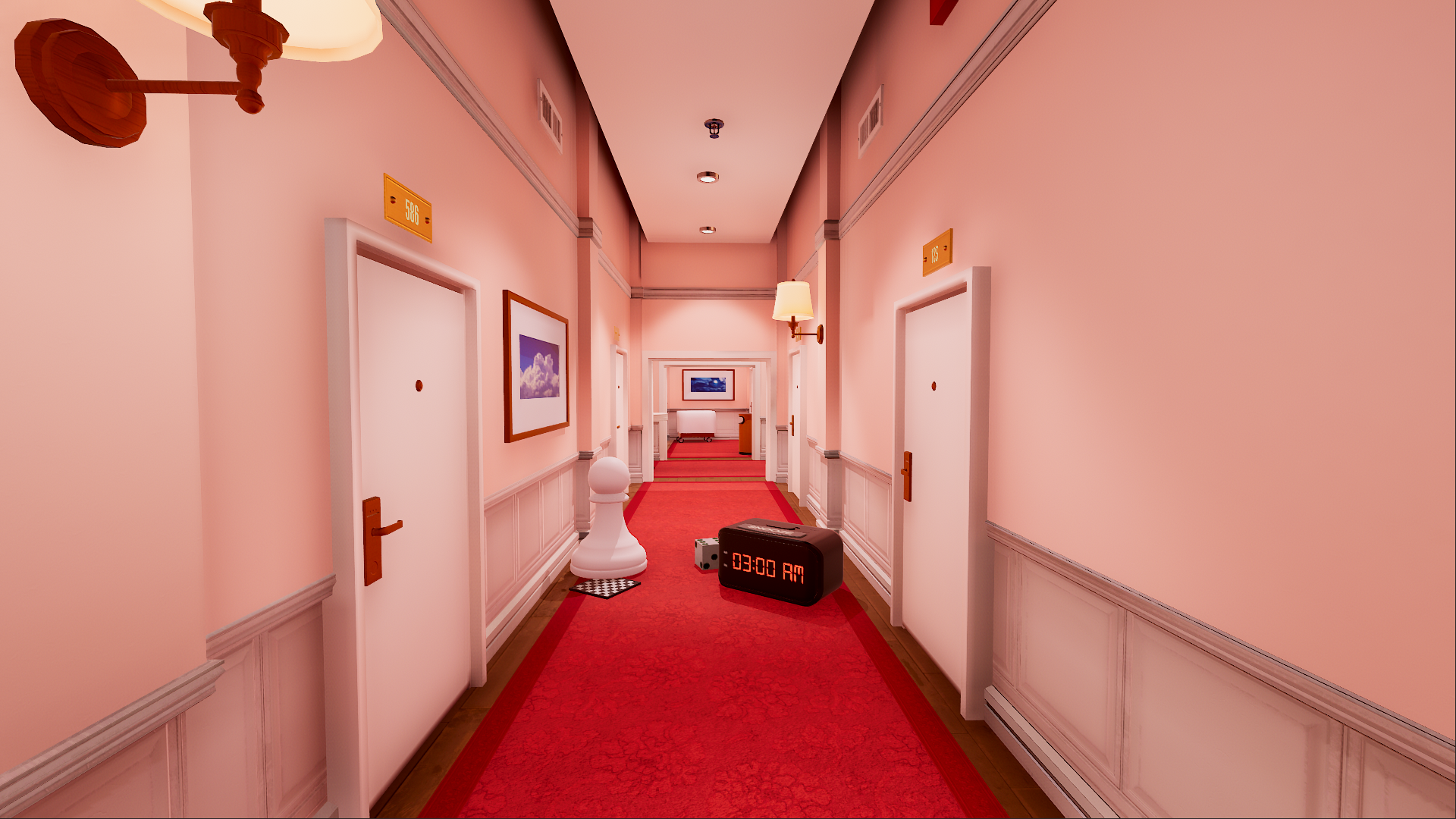
Your treatment journey is sporadically narrated by the friendly voice of Doctor Glenn PIerce and the Somnasculpt diagnostic computer, who each attempt to guide you along the way. The double act of a cold, and often disparaging robot and the kindly but bewildered funny man conjures images of Portal 2s GLaDOS and Wheatley, but with the interactions being much more limited, there’s no risk of this feeling like a poor imitation, coming across more as a nod towards a respected influence instead. And the influences don’t stop there, with references to dreams within dreams, impossible architecture and empty dream space seemingly inspired by Christopher Nolan’s cerebral epic, Inception, Superliminal makes use of what is now pop-culture knowledge to help explain what is actually a fairly complex premise.
Superliminal leans heavily on the use of forced perspective to trick the player into expecting one thing and then revealing it to be entirely another, and within ten minutes of playing the game you’ve learned that you cannot trust anything until you’ve inspected it in detail. What might look like a dead end could in fact be a cleverly scaled paint job that makes a normal corridor appear to be impassable, though that’s not noticeable until you’re up close. Even more impressive are the moments when standing in just the right spot aligns a series of images placed across the room and poof!, the murals suddenly drop off the wall to become a tangible object right before your eyes! You’re asked to look at every situation from every single angle, and it’s not until you’ve done the legwork that you can truly understand what’s required of you.
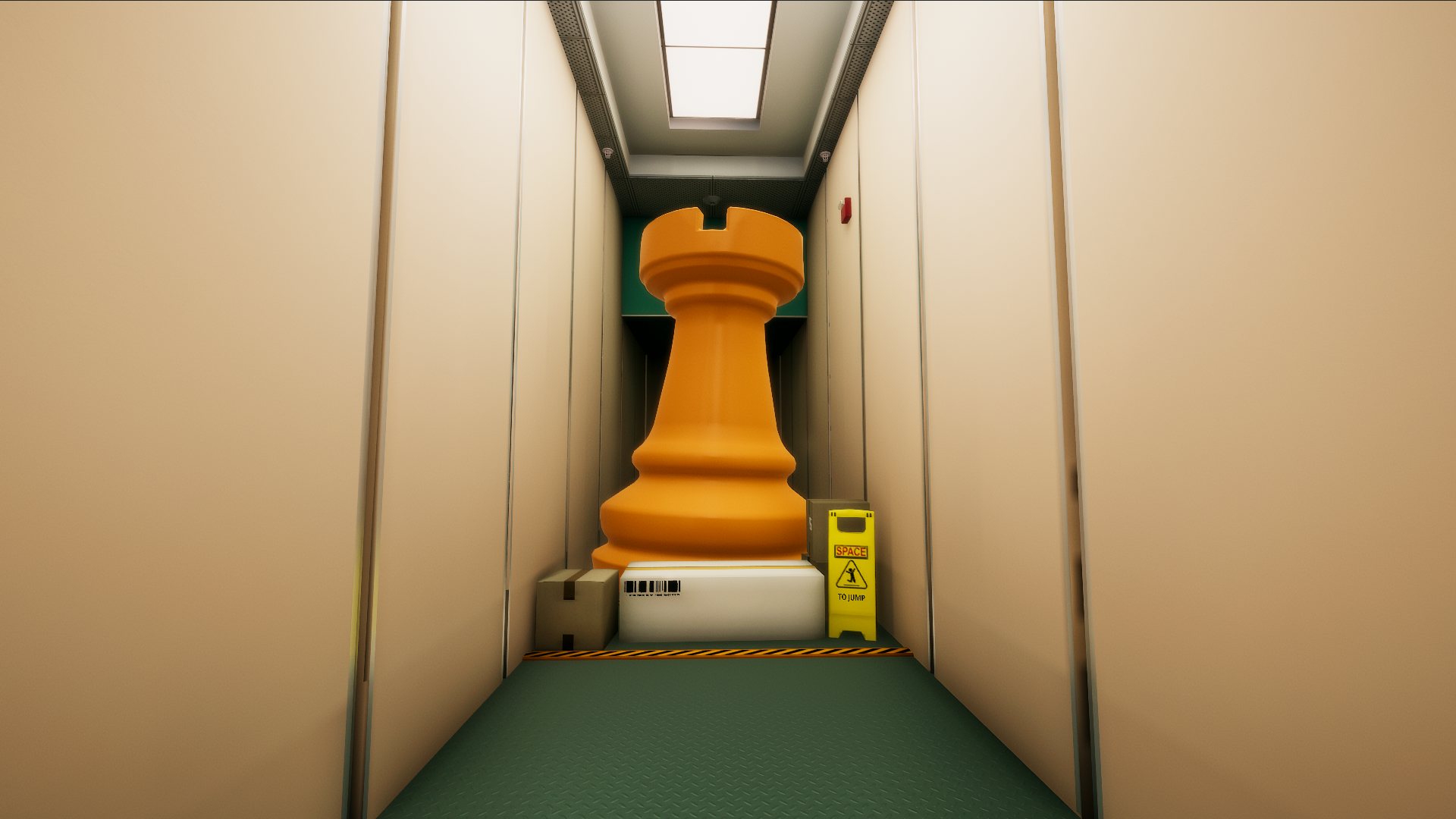
The depth of thought in the puzzle design is awe-inspiring and I regularly exclaimed with joy at how both outside-the-box and internally logical the solutions managed to be. I didn’t find myself stuck for more than a few minutes on any given puzzle and for me that was part of the enjoyment – each problem asks slightly more of you than the one before until you reach the point that you have a whole repertoire of thought processes that you simply didn’t have when you started the game. One of the few drawbacks of Superliminal is that the developers have had to limit the number of items that you’re able to physically pick up and interact with, and this does mean that the areas do lose a certain amount of immersion. That said, I entirely understand the need to do this, as being able to manipulate the size of each and every item in a room would lead to many of the puzzles being solvable incredibly simply and would ruin the carefully planned solutions that make the game so fun.
The reality-bending mechanics truly are marvellous, and Superliminal’s ability to equally inspire feelings of wonderment and empowerment is impressive. Pillow Castle Games have managed to create a game that mirrors the feeling of lucid dreaming incredibly well – there’s a seamless blending of the humdrum and the utterly bizarre that feels so genuine – regardless of how weird the current interaction is, you accept it because you know you’re dreaming and know that you’re in control. The developers play puppet masters with players’ field of vision too and use your limited perception to alter the world around you while you’re looking elsewhere – that realisation that something has changed while we weren’t looking is a phenomenon we’ve all experienced in dreams and has been masterfully replicated in-game.
While I enjoyed the whole of Superliminal, I have to give a particular shout out to the final level, which I found to be one of the most impactful finales of any game I have ever played. The level of immersion brought by the powerful score and otherworldly visuals as you reach the climax of your journey is like nothing I have experienced before, and I honestly played the whole section covered in goosebumps. I spent the entire game learning to expect the unexpected, yet was caught off guard in a series of jaw-dropping moments that culminates in a powerful but entirely practicable moral. Superliminal actually has the power to succeed in what the Pierce Institute promises in game – you only need to be open to the message it preaches.
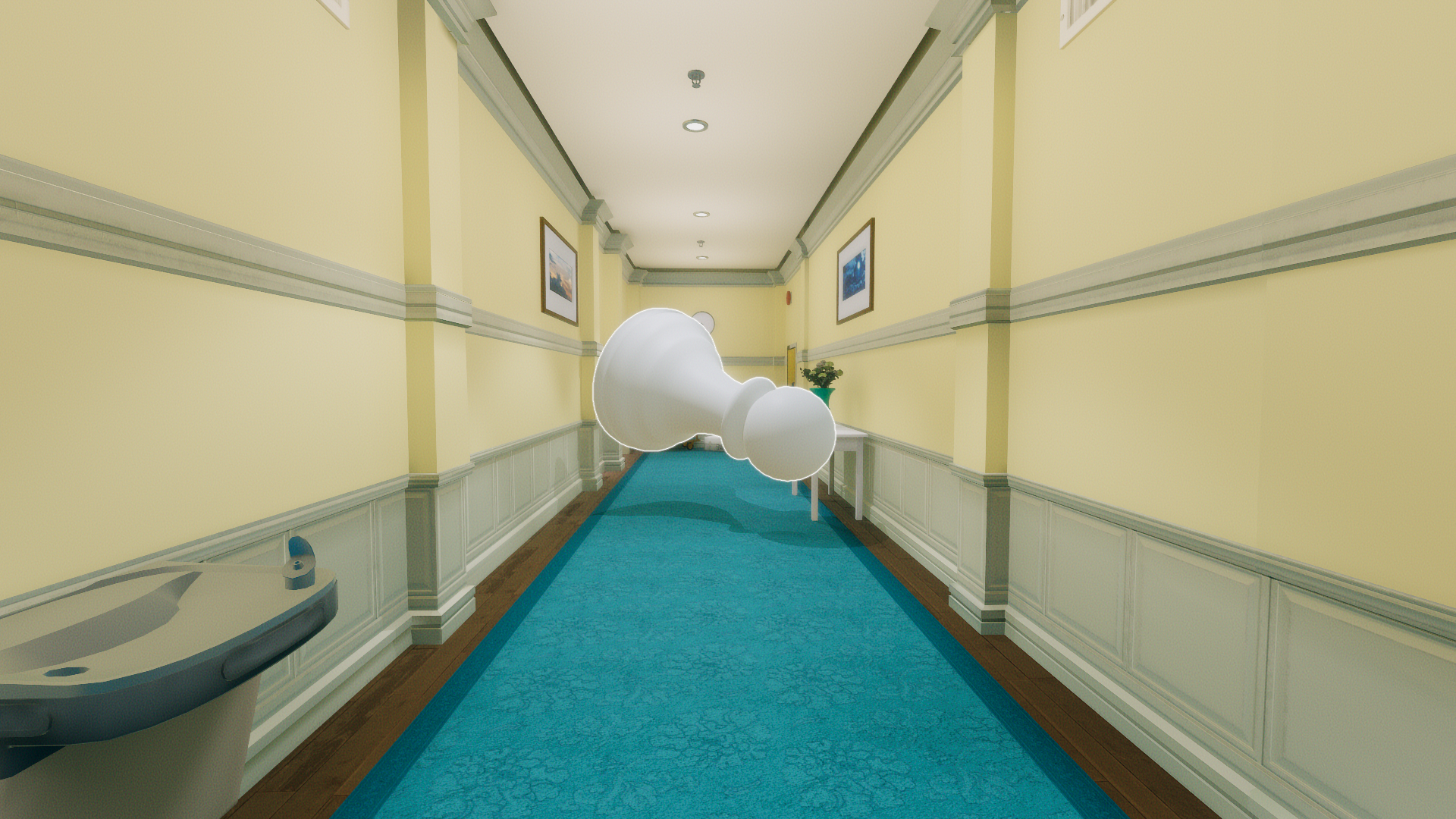
At somewhere around three hours long, Superliminal is not a game that you are beholden to for long, but I found it to be wholly captivating for the entirety of its runtime. There are no down moments in the game and I actually think you’ll get the most out of it if you’re able to play the whole thing in a single sitting. There’s some solid replayability to the title too, with a very interesting developer’s commentary mode available after your first completion, and a number of optional achievements to unlock that will take some completing without the help of YouTube.
Superliminal is quite simply a masterpiece. Pillow Castle Games have taken an interesting premise and ridden it to a place that no developer has gone before, resulting in an impeccable game. The perspective-based mechanics are just incredible, and there’s a level of innovation in the puzzle design that deserves recognition alongside some of the greatest games of all time – truly, Superliminal is to visual trickery what Portal 2 is to physics. While short, puzzling my way through the dreamscapes of the Somnasculpt program is one of the most memorable gaming journeys I have ever experienced, and culminates in a crescendo that’s more impressive than any AAA 100 hour epic. I cannot recommend this game enough.
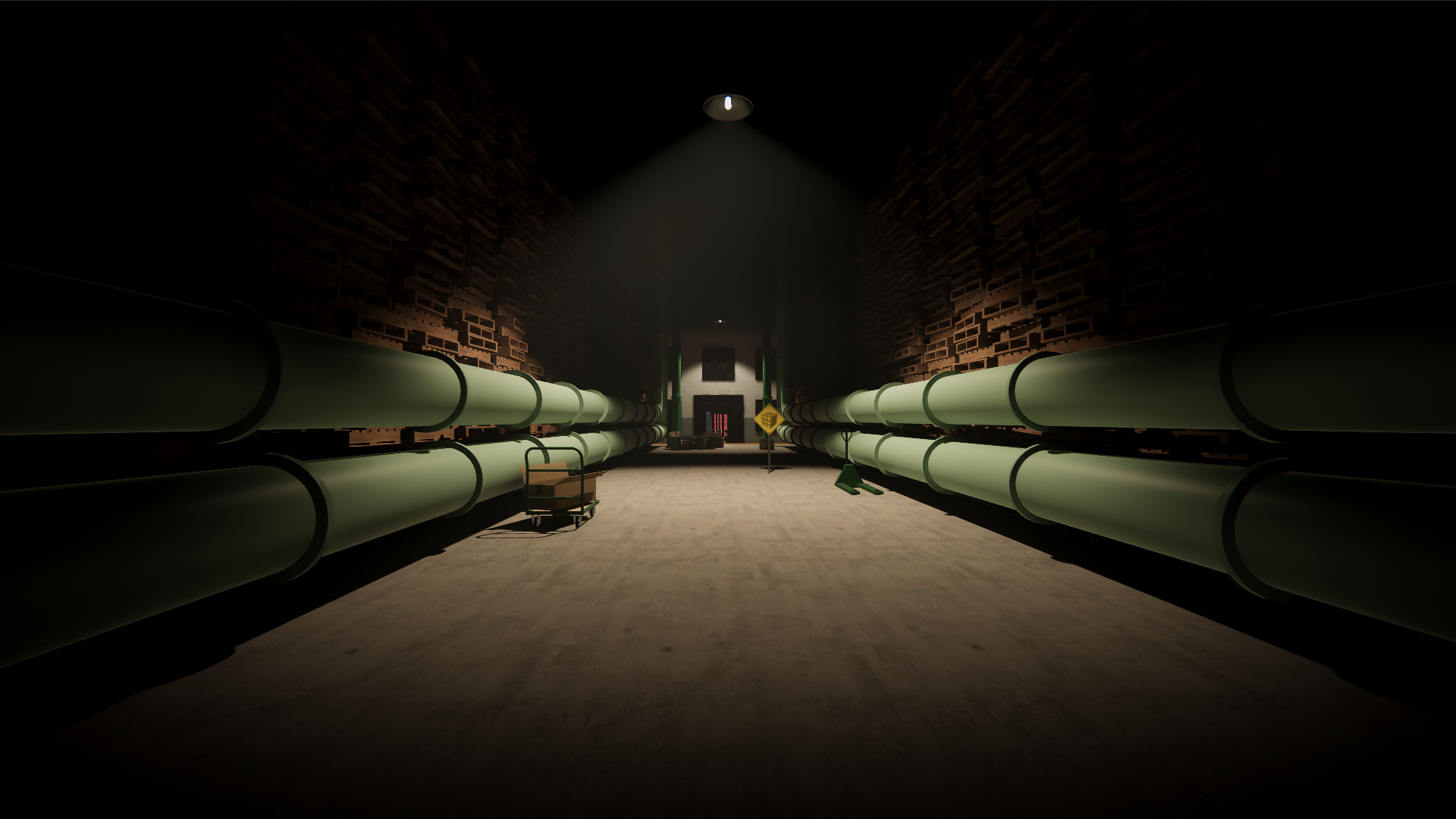



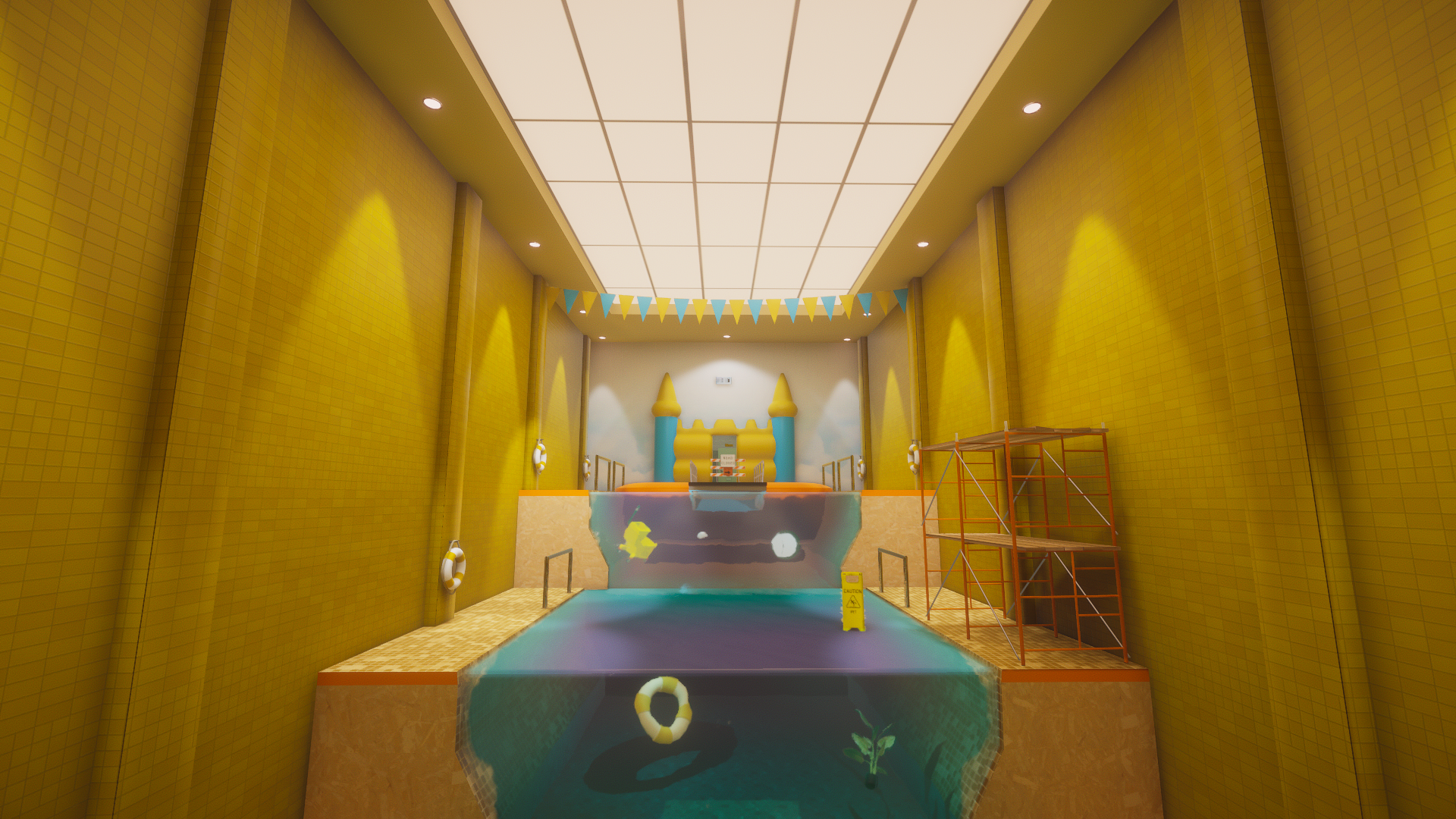
In the interest of full disclosure, VGamingNews was provided with a copy of the game in order to conduct this review.



